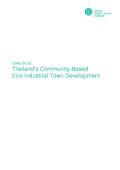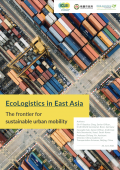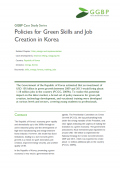
Special economic zones have played a critical part in South Korea’s rapid industrial development over the past few decades, and have contributed to significant economic and social benefits to the country. However, this rapid development has also resulted in severe environmental degradation and consequential challenges to public well-being. The Korean National Cleaner Production Center (KNCPC) launched the National Eco-Industrial Park (EIP) program in 2003, in line with efforts by the Ministry of Trade, Industry, and Economy (MOTIE) to promote innovative industrial development which simultaneously achieves environmental sustainability.
Several factors contributed to the success of the Korean EIP program. First, KICOX effectively utilized local experts and their networks to expand business and civil society engagement in the program. The Korean government also employed an effective funding scheme to facilitate private participation and investment without causing fund recipients to become dependent or avoid accountability. Despite its many achievements, the Korean EIP program has potential opportunities to improve.




